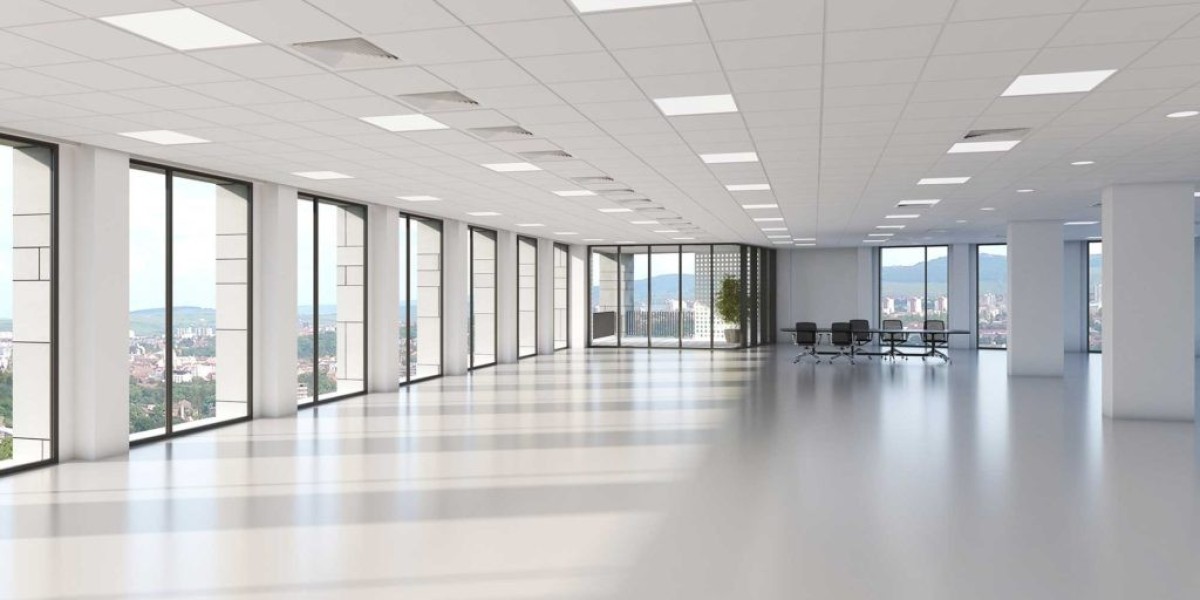The hospitality flooring market is experiencing a significant shift as hotels across the globe prioritize hygiene and safety, particularly in light of the ongoing health challenges brought about by the COVID-19 pandemic. As guests become more conscious of the cleanliness and sanitation practices in the places they stay, hotels are increasingly turning to innovative flooring solutions to enhance hygiene, improve safety, and create a healthier environment. Flooring, as one of the most high-traffic areas in any hotel, plays a vital role in maintaining cleanliness, preventing the spread of germs, and ensuring guest and staff safety.
As the hospitality industry continues to adapt to the new realities of guest expectations, the importance of flooring in maintaining a safe, hygienic environment has become clearer. This shift has led to significant changes in the types of flooring materials being chosen and how they are maintained. The hospitality flooring market is now seeing a growing demand for materials that meet these new safety standards and contribute to the overall health and well-being of hotel guests.
Hygiene-Focused Flooring Choices
The growing emphasis on hygiene has driven a surge in the popularity of flooring materials that are antimicrobial, easy to clean, and resistant to bacteria, mold, and fungi. Hotels are increasingly choosing flooring options that can withstand regular cleaning and disinfecting without losing their appearance or integrity. Materials such as vinyl, rubber, and certain types of tiles are gaining favor in hotel settings due to their resistance to moisture and ease of maintenance.
Luxury vinyl tiles (LVT) are one such material that is being widely adopted in hotels. These tiles are not only durable but also have an antimicrobial coating that inhibits the growth of bacteria and other pathogens. This feature is particularly important in high-touch areas such as lobbies, corridors, and guest rooms. In addition, LVT is easy to clean and maintain, making it an attractive option for hotels looking to streamline their cleaning procedures and improve hygiene.
Cork flooring, with its natural antimicrobial properties, is another flooring option that is increasingly being used in hotels. Cork is naturally resistant to mold, mildew, and bacteria, making it an ideal choice for areas where cleanliness is a top priority.
Tiles, particularly ceramic and porcelain, are also gaining traction for their hygiene benefits. These materials are non-porous, meaning they do not absorb moisture or harbor bacteria, making them easier to clean and sanitize. In high-traffic areas like hotel bathrooms and kitchens, tiles are a practical and hygienic solution.
Flooring Materials that Prevent Accidents
In addition to promoting hygiene, hotels are increasingly choosing flooring materials that improve safety by reducing the risk of slips and falls. The safety of guests and staff is a top priority, especially in areas that are prone to wet or slippery conditions, such as bathrooms, spas, and pools. Flooring materials with slip-resistant properties are essential in minimizing the risk of accidents.
Rubber flooring is a popular choice for areas with high moisture exposure. It is highly slip-resistant, even when wet, and provides excellent cushioning, which can reduce the severity of injuries in case of a fall. Rubber flooring is commonly used in hotel gyms, swimming pool areas, and spa facilities where safety is of utmost concern.
Wood-look flooring, often achieved through high-quality laminate or LVT, is another popular choice for hotels aiming to combine aesthetics with functionality. These materials can offer the appearance of wood while providing a more slip-resistant surface, making them suitable for a variety of spaces, including guest rooms, lobbies, and dining areas.
Improved Maintenance and Cleaning Protocols
Beyond selecting the right materials, hotels are also rethinking their maintenance protocols to ensure that floors remain clean and hygienic. Regular cleaning and disinfecting have become essential in ensuring that floors are free from pathogens and contaminants. Flooring manufacturers have responded to this need by creating products that can withstand frequent cleaning with harsh chemicals without degrading.
In addition to the practical advantages of easy-to-maintain flooring, many of the materials now used in the hospitality industry are designed to offer long-term durability, reducing the need for frequent replacements. This is not only cost-effective for hotel owners but also ensures that the hotel maintains a high standard of hygiene and safety over time. By investing in high-quality, durable flooring materials, hotels are able to minimize the maintenance required while ensuring that their floors continue to meet health and safety standards.
Market Future Outlook
As hotels continue to prioritize hygiene and safety in response to shifting guest expectations, the hospitality flooring market is likely to see sustained demand for materials that support these goals. Innovations in flooring technology will continue to play a significant role in this transformation. For instance, antimicrobial and self-cleaning flooring technologies are likely to become more common as manufacturers develop new ways to combat the spread of germs and bacteria. This will make it easier for hotels to maintain high levels of cleanliness with less effort and cost.


